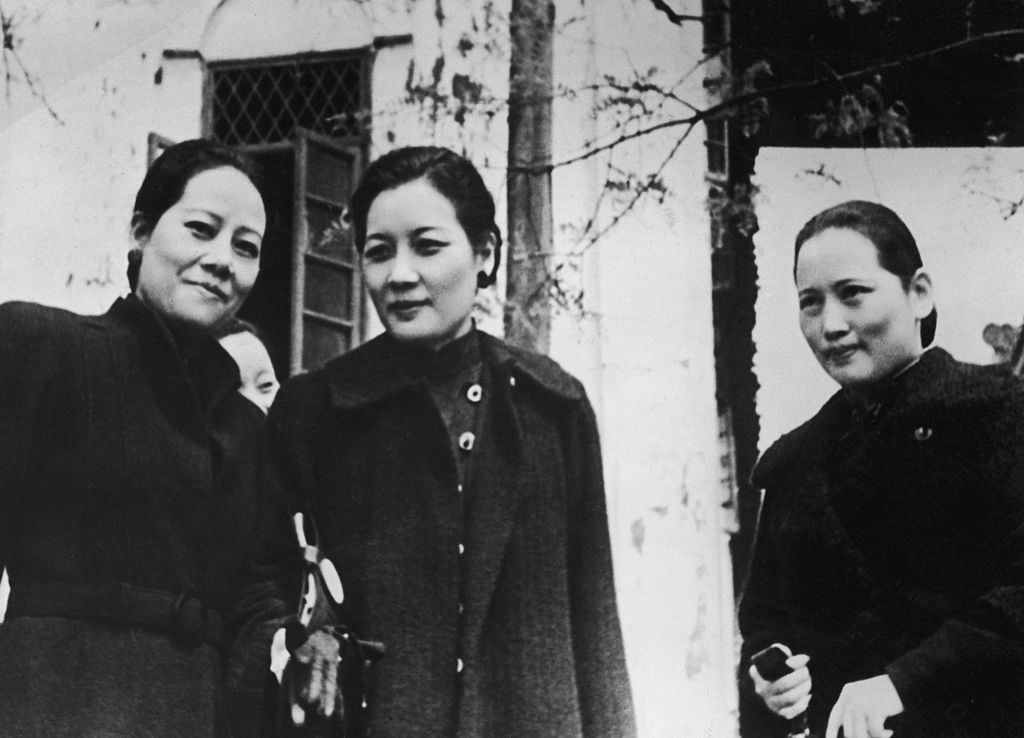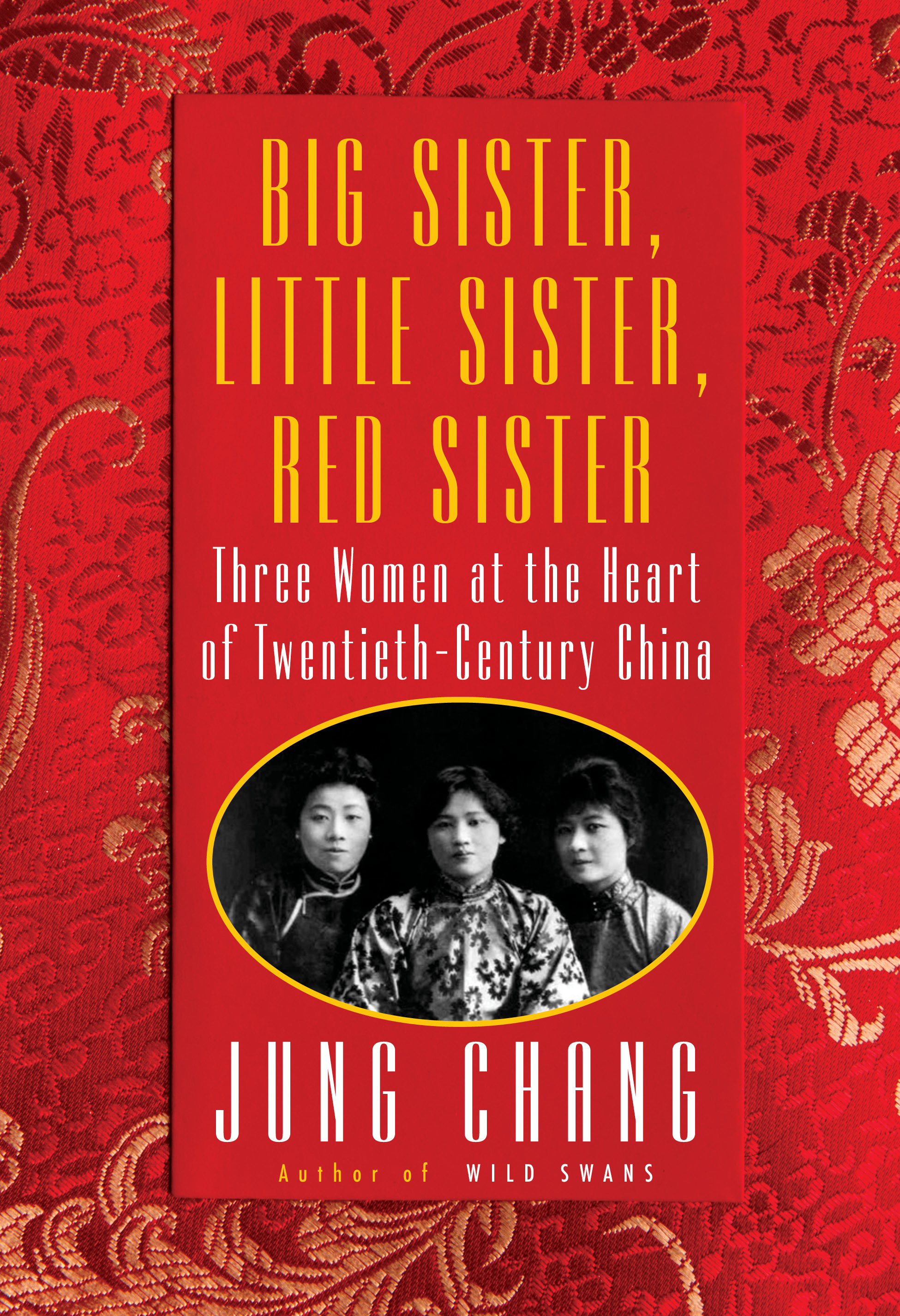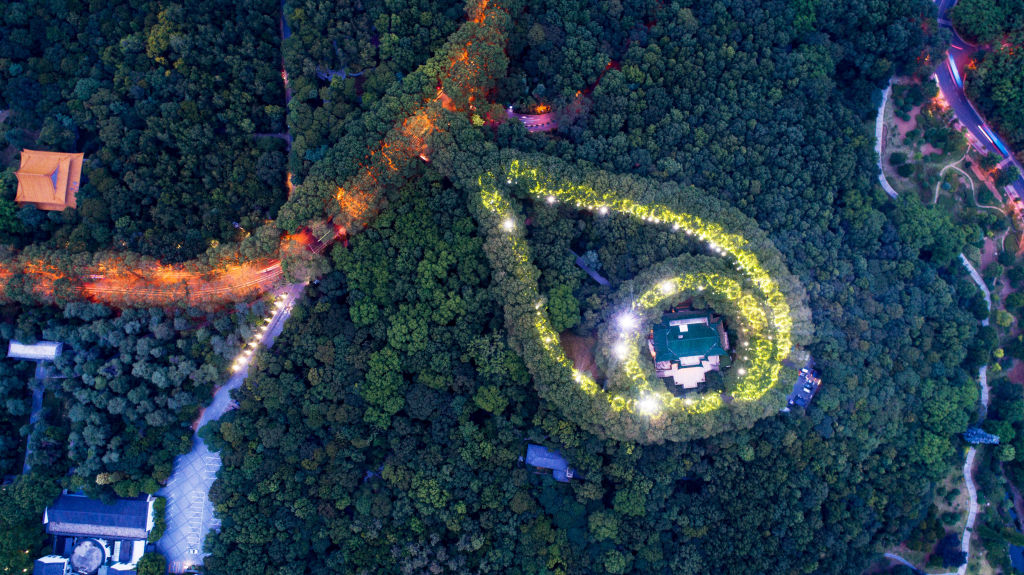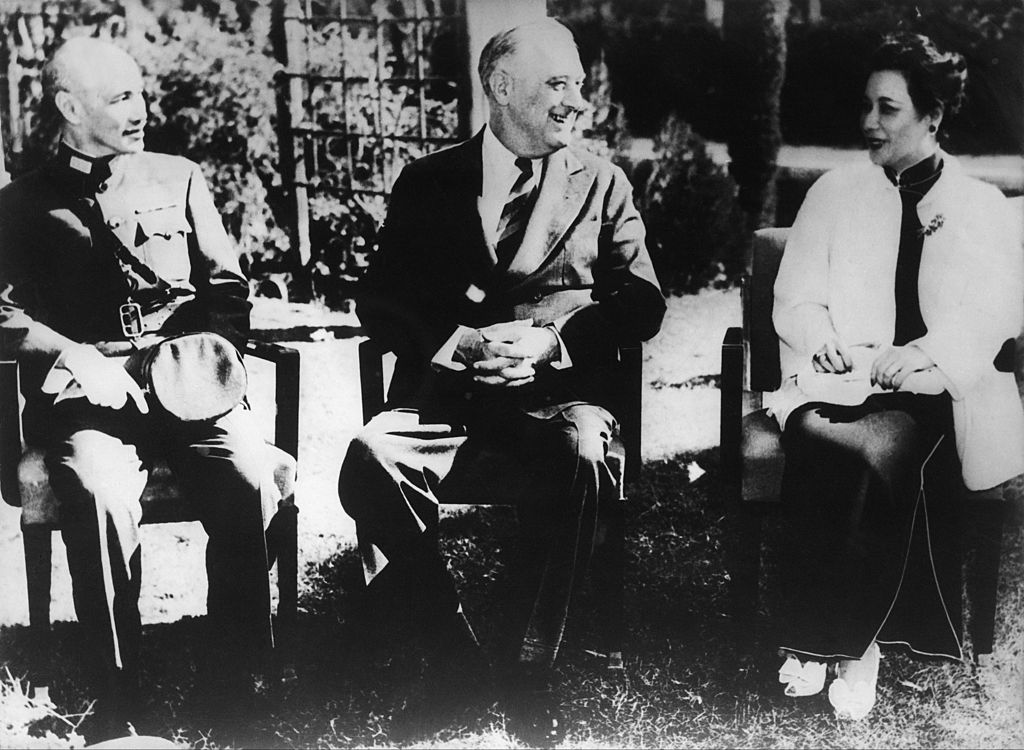
The three Soong sisters were precocious from a young age. But few could have predicted the level of influence they eventually had on the course of history in 20th-century China. Born in Shanghai in the 1890s to Charlie Soong, a wealthy merchant and missionary, the sisters were all educated at Wesleyan College in Georgia, traveling to the U.S. without an accompanying guardian. “Big Sister” Ei-Ling, was known as the brightest mind in the family, gaining fortune through her marriage to banker and eventual finance minster of China H.H. Kung. “Little Sister” May-Ling, married Chinese Nationalist leader Chiang Kai-shek and became first lady of the mainland known around the world, even gracing the cover of TIME three times. And “Red Sister” Ching-Ling married Sun Yat-sen, the first President of the Republic of China and the opponent of Nationalist leader Chiang, before becoming Mao’s vice-chair.
One biography of the Soong family was published in 1986, and several biographies have since been written about Little Sister in her role as Madame Chiang Kai-shek. But a new book by historian and writer Jung Chang, Big Sister, Little Sister, Red Sister: Three Women at the Heart of Twentieth-Century China, reveals the fascinating intertwined story of the three sisters for the first time. Best known for her 1991 international-bestseller Wild Swans: Three Daughters of China, which explored her own family history in China through the twentieth century, Chang researched previously unused documents from archives, including personal letters written by the sisters, to chart their fascinating personal and political lives. Chang spoke to TIME about the Soong sisters, their impact on history, and what has changed for women in China since their time.

What prompted you to write about the Soong sisters?
After my last book, the biography of Empress Dowager Cixi, was published in 2013, I was thinking about my next subject. I wanted to write about another program setter, so I started researching Sun Yat-sen, who is often called the father of China. Then I changed my mind — I was a little bored. I found that his wife and her sisters were much more interesting than him. They were political, but they also had other aspects about them: Their personal, emotional ups and downs, their dramatic lives, and their relationships. So I decided to write about them.
What was your most surprising discovery?
I was surprised about the relationship between Chiang Kai-shek and Madame Chiang Kai-shek. For many years after her marriage to Chiang Kai-shek, May-Ling was in a deep depression, and he wanted to get her out of it, so he gave her this present, which was a “necklace,” for her birthday in 1932. It encircled a whole mountain, and the jewel of the necklace was a villa, called the May-Ling Palace outside Nanjing. The roof of this villa has blue-green tiles which sparkle in the sun, and made it look like a real jewel. The chains of the necklace are made of French pine trees which Chiang had imported to China and planted like a real necklace around the whole mountain. The pine trees colour in a different way to the local trees, so in the autumn, if you took a private plane, which of course you could do if you were May-Ling, you see this spectacular necklace. This side of Chiang Kai-shek, in the personal relationship and his imaginativeness and sensibility to May-Ling was a bit surprising to me.

Why had their histories not been explored in depth before?
I think in Chinese history, so many things have not been written about which ought to have been written about. With the three sisters, there is too much politics involved with their lives, and inevitably you don’t get truthful, honest, scholarly writing. When I was growing up in mainland China for example, we all heard that May Ling had a bath every day in milk, which is why her skin was so fine. I remember our teacher saying gently, do you really think bathing in milk is pleasant? And of course, he was condemned as a rightist.
In this book, the paths of these three sisters were part of a major period in Chinese history. Between 1913, and 1928 when Chiang Kai-shek seized power, China was a democracy. This came as such a revelation to me, because no one talked about that period, and still they don’t talk about this in China. China had an artistic, literary, linguistic and creative renaissance simply because it was a democracy. During this time, there were three general elections, a functioning parliament, press freedom and freedom of expression, and of course women’s emancipation.
In a way, Big Sister, Little Sister, Red Sister is similar to your earlier autobiography Wild Swans in intertwining the personal histories of a family with the broader arc of Chinese history. Is it your conscious choice to tell stories that way?
Wild Swans is about three women on the receiving end of history. We were small people in society. These three women were at the heart of power and they contributed in making these policies, they had a certain influence and an impact on how China evolved in those years. It is my conscious decision to write about characters and people whose private personal lives are intimately connected with the politics and history of the country. I think that’s much more interesting. For me, it helps me find answers to all these questions, the big holes in history books that don’t satisfy me.
Had there been any Chinese women as much as political power as the Soong sisters before? And would you say there have been any since?
No. The Empress Dowager was really powerful, and she was the ruler of China on and off for nearly half a century. She was the first modernizer of China, bringing medieval China into the modern age. The sisters were not policymakers on the same level as the Empress Dowager, but still they had extraordinary influence. Ching-Ling was Mao’s vice chair. May-Ling was China’s first lady for many years, and during the Second World War, she was one of the most famous women in the world. She was the face of wartime China and did a lot for the country. At the Cairo conference in 1943, she went with Chiang Kai Shek and she personally negotiated with Roosevelt’s representative. She made a difference and was a politician in her own right. Big Sister, Ei-Ling, also had tremendous influence on Chiang Kai-shek. For one thing, she converted him to Christianity and that softened his dictatorship, making it less harsh. The sisters made his dictatorship less harsh than it might have been.

No, there have not been people like them. The sisters were from a time when big things were happening and people of greatness were emerging because that was a very liberating period. After so many years of dictatorship, from Chiang Kai-shek to Mao’s, right up to the repressive regime of today, there isn’t this atmosphere or soil for people like them to blossom.
One passage from an essay by Ei-Ling referring to Confucius is striking: “His grossest mistake was the failure to regard womankind with respect.” How progressive were the sisters for their time?
This surprised me because she was a teenager when she wrote that and it was the beginning of the twentieth century. She was so perceptive: Without denigrating Confucius, she put her finger spot on on the major weakness of Confucianism, which is its contempt for women. She said words to the effect that a nation would not really become great without the liberation of its womenfolk. I found it extraordinary that she saw that then, when one hundred years later, many people still haven’t grasped that.
How has the role of women in Chinese society changed overall since the time of the Soong sisters?
As I live in Britain now, not China, my views and my experience there is very limited. Since writing the biography of Mao, I lost my freedom to travel in China. I can only go back for two weeks a year to see my mother. I have no contact while I’m there with the public and people beyond my immediate family. Any views of mine are bound to be not only limited, but may not be quite right.
But from the little I know, when I was in China under Mao, women were told that we held up half the sky. For me at the time, that meant we did things which were traditionally not for women. I was a steelworker and an electrician, although I dreaded going near wires. For people of my generation, women did a lot of physical labour and were traditionally reserved for men. One was also less conscious of one’s sexuality in those years. Any sign of people’s sexuality or female mind and character was not allowed to come to the surface. In those days, we couldn’t show what we wanted as a woman. I think today’s China has changed since then. All I can say is that it’s probably more difficult for women to excel.
Given that you’ve spent a large part of your life outside mainland China — although of course, not voluntarily — do you still feel like it is home?
No. My home is London, where my husband and my friends are, and where I feel most at ease. Having said that, of course I take an intense interest in China. That’s my native country, and it’s the country I somehow care so much about, and I worry so much about what might go wrong there. I really care and feel for the country and the people who have been so much and really deserve good lives. It’s a country I feel very emotional about.
This interview has been lightly edited and condensed for clarity.
Correction, Oct. 30
The original version of this story misstated the time that China was a democracy. China’s democratic government lasted from 1913 until 1928, not until 1938.
More Must-Reads from TIME
- Cybersecurity Experts Are Sounding the Alarm on DOGE
- Meet the 2025 Women of the Year
- The Harsh Truth About Disability Inclusion
- Why Do More Young Adults Have Cancer?
- Colman Domingo Leads With Radical Love
- How to Get Better at Doing Things Alone
- Michelle Zauner Stares Down the Darkness
Contact us at letters@time.com